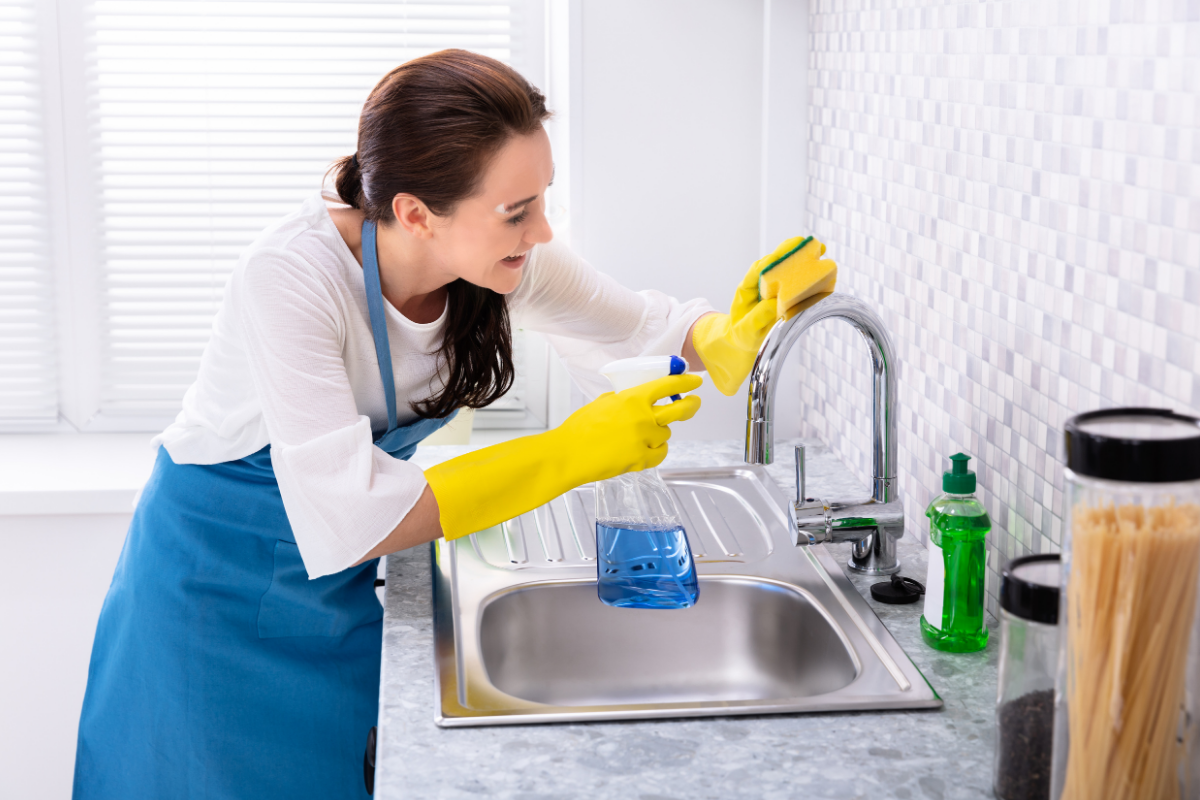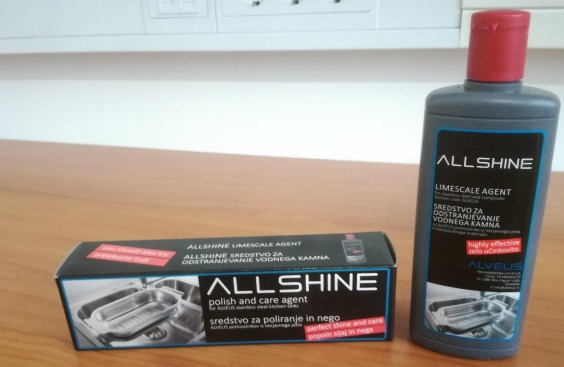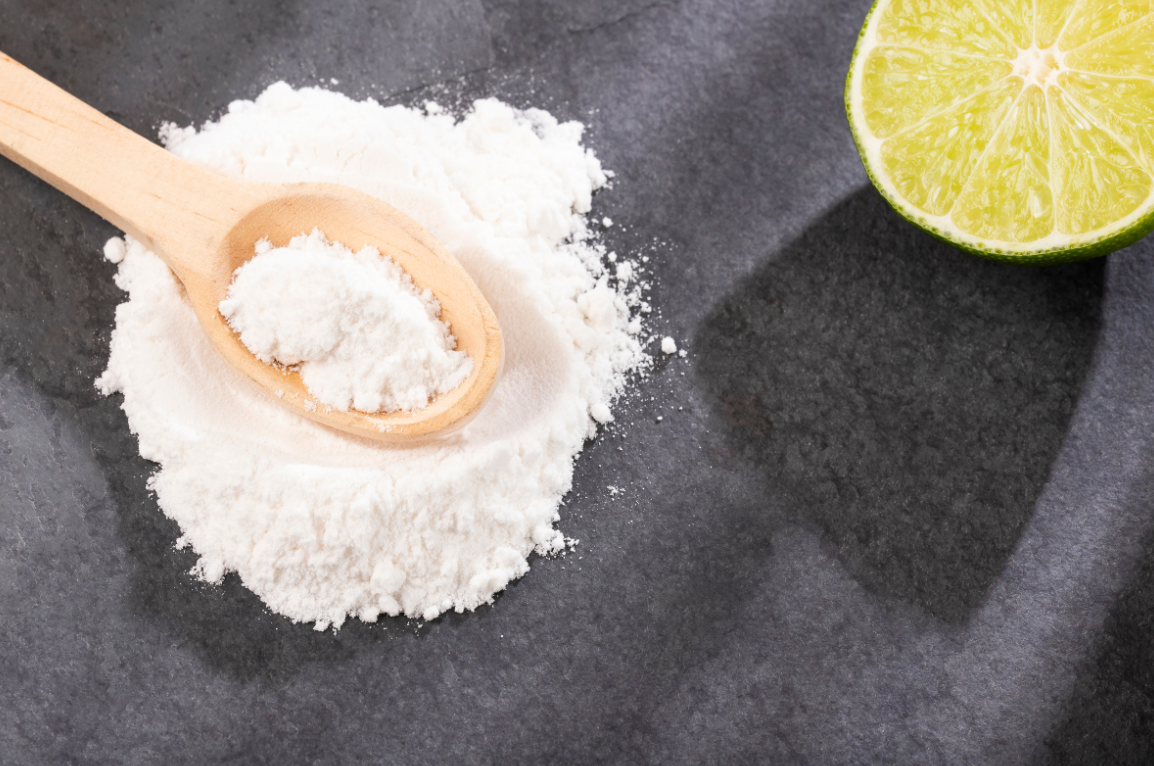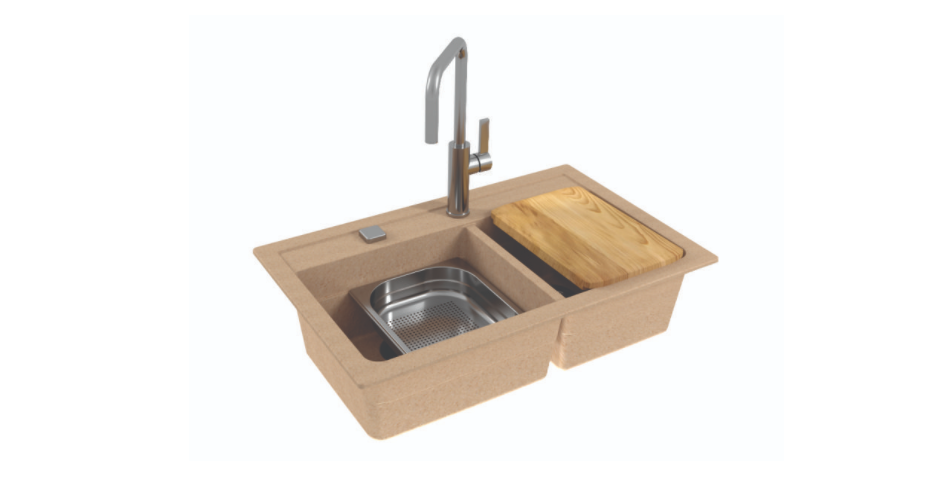The kitchen has become much more than just a room to prepare meals. It has become a central space where we spend time with our family and friends. It has become the heart of our home.

The kitchen sink and the kitchen tap have always been the center of each kitchen. Namely, this pair immediately draws the attention of each visitor and is a true eye-catcher.
Therefore it is important to choose a quality kitchen sink and kitchen tap that you like and to give them regular (but very easy) care.
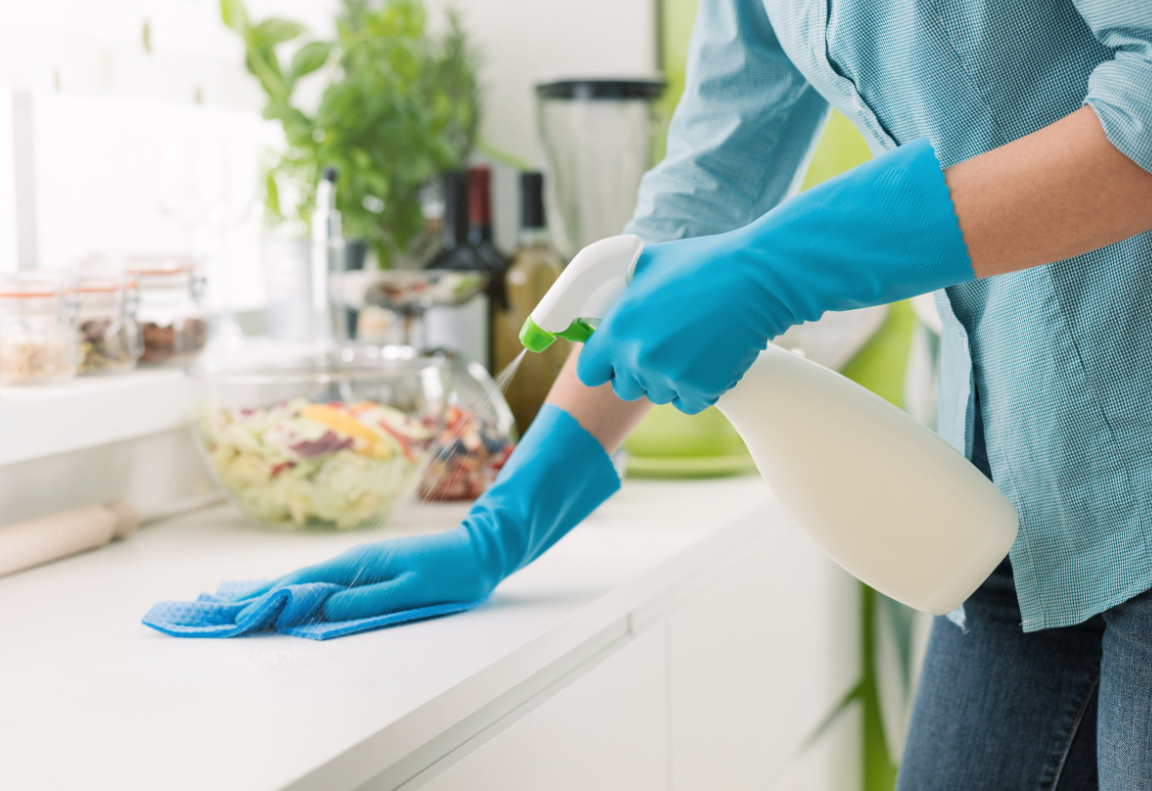
We have already written in detail about the cleaning of kitchen sinks and taps in the article that is available at the following link.
In the present article we offer some tips for cleaning of Alveus kitchen sinks and kitchen taps, prepared by our colleague Damjana, who has been a part of Alveus team already for 25 years.
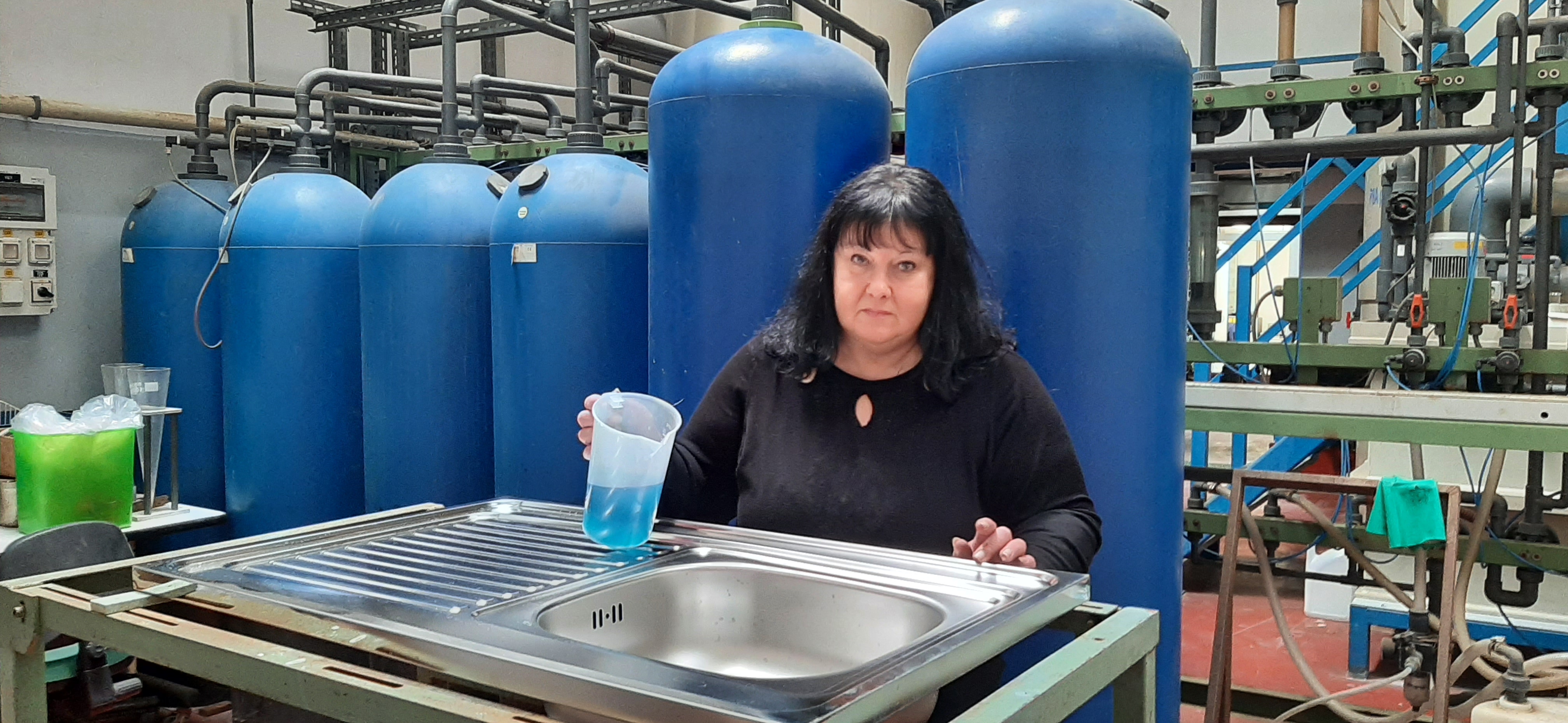
Damjana is a chemical processes technologist. She is in charge of the operation of the water treatment plant, performing the tests of materials chemical resistance and ecology. Said more simply: she performs testing of different materials and their reactions to different cleaning agents and chemicals which helps us to ensure that all Alveus products are easy to clean and maintain.
Example:
Damjana has dealt with the customer's complaint saying that the kitchen sink could not be cleaned.
-
There were stains and a lot of limescale and other dirt over the entire bowl of the sink.
-
On the drainboard, the outlines of the kitchenware drained there were visible.
-
The limescale was dried around the tap opening.
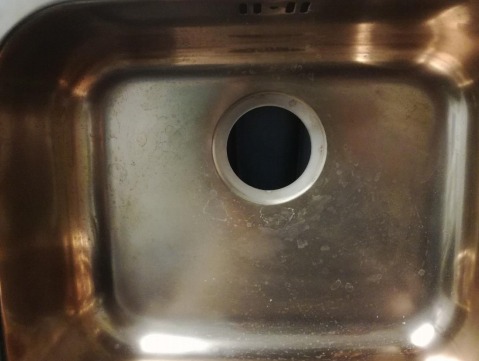
She performed the following cleaning:
Step 1: First she cleaned the kitchen sink with Alveus Allshine limescale cleaner which successfully removed all obsolete limescale. Some darker stains remained on the bottom of the kitchen sink.
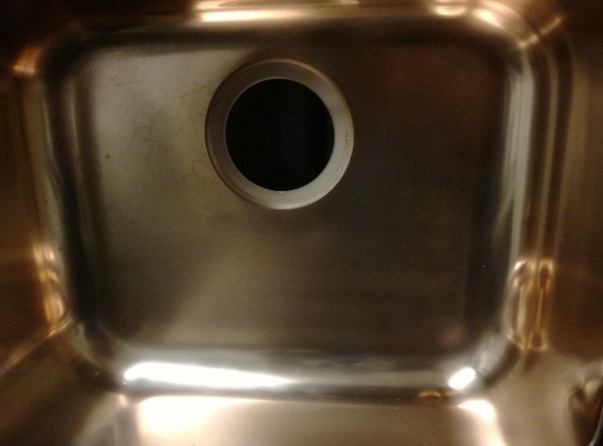
Step 2: After that, she cleaned the kitchen sink with Alveus Allshine polishing paste. Thus the kitchen sink was completely cleaned.
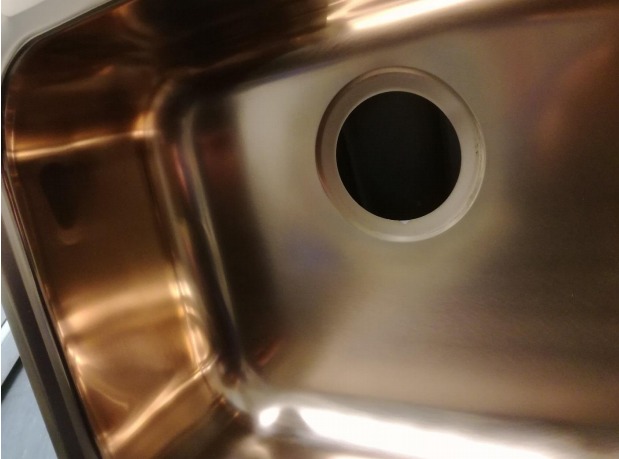
Used cleaning agents:
Tips for cleaning of kitchen sinks and kitchen taps made of all types of materials
From a perspective of cleaning it does not matter which type of material you choose if you are going to clean your kitchen sink and kitchen tap on a regular basis.
Tip # 1
“Wipe the kitchen sink and kitchen tap with a clean and dry cloth after each use, regardless of the type of material they are made of.
Why? When the water evaporates on the surface, the limescale remains and leaves stains.”
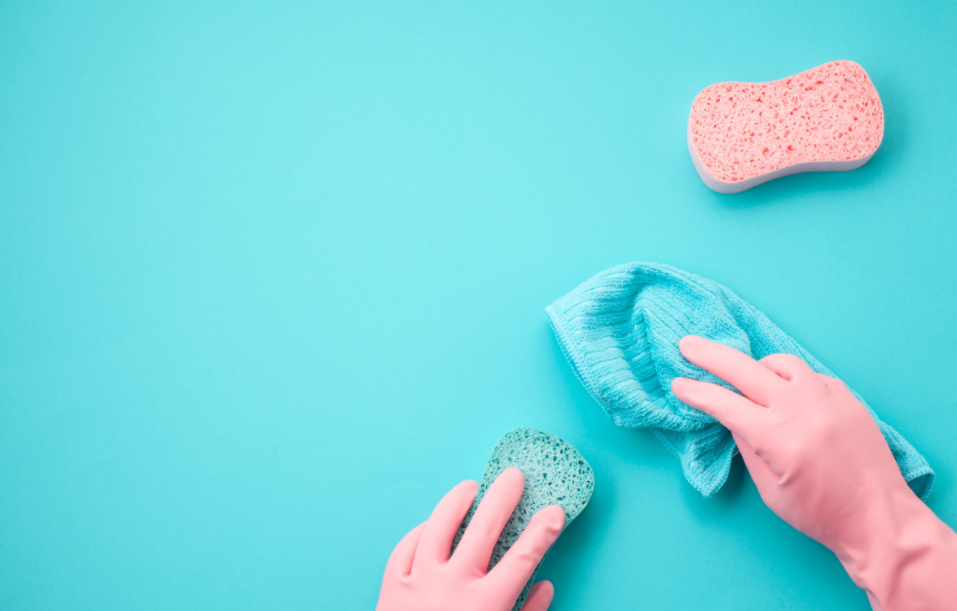
Tip # 2
“Avoid using aggressive chemicals: cleaning agents for drains unclogging, strong bleach, disinfectants etc. that contain sodium hypochlorite and/or bleach.
Why? These chemicals can cause damage to the surface of all kitchen sinks.
You should also avoid using coarse abrasive cleaning agents that leave scratches on the surface.”
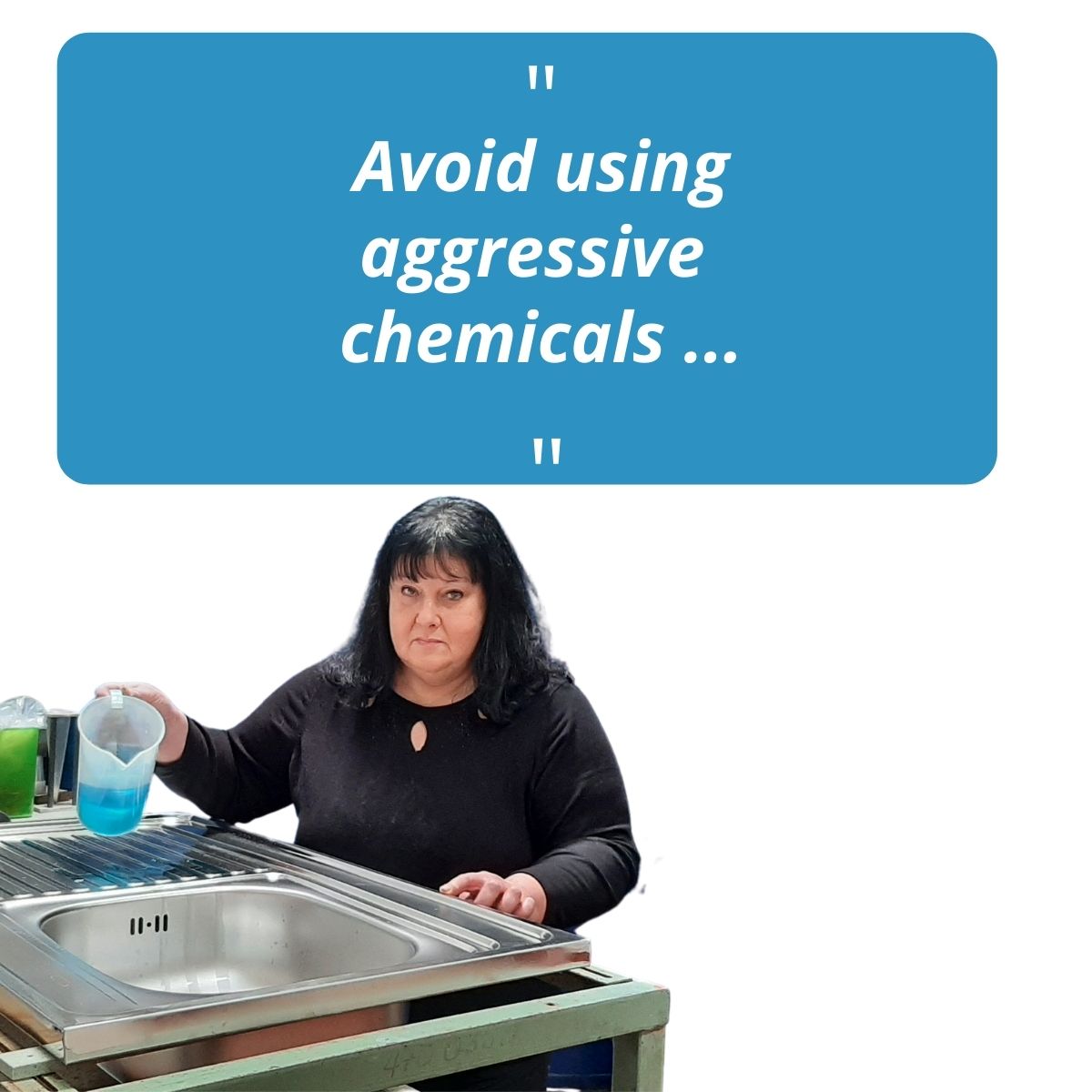
Tip # 3
“For all those who prefer natural cleaning agents, baking soda and vinegar are pretty effective home-made cleaner for different stains.
Sprinkle the dirty surface with baking soda and then add vinegar. Wait a while for the cleaner to react and then rub well with a sponge and rinse with water.”
Tip # 4
Baking soda and lemon are an efficient combination for removing different stains. Sprinkle baking soda onto a half of lemon and rub the stain with it.
Tips for cleaning of kitchen sinks and kitchen taps made of stainless steel
Tip # 5
“If the limescale deposits build up on the stainless steel kitchen sink or kitchen tap, you may remove them well with Alveus Allshine limescale cleaner.
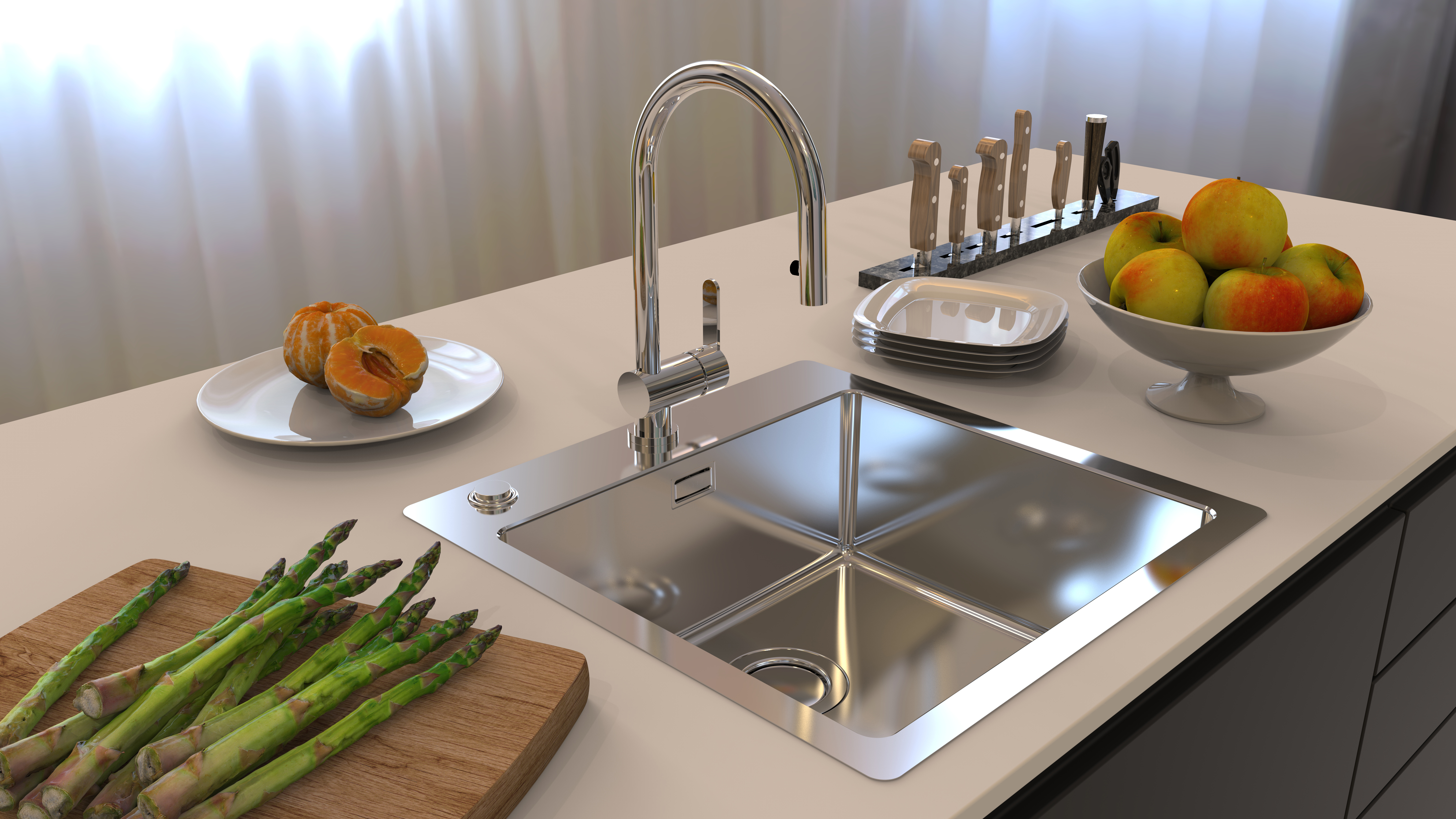 From time to time it is recommended to use Alveus Allshine paste which not only cleans the sink thoroughly but also gives it the shine.”
From time to time it is recommended to use Alveus Allshine paste which not only cleans the sink thoroughly but also gives it the shine.”
Cleaning of kitchen sinks made of Granital
Tip # 6
“It is recommended to clean the granite kitchen sink with Alveus cleaning agent from time to time and then to coat it with oil (e. g. paraffin oil or edible oil) in order to restore its shine.”
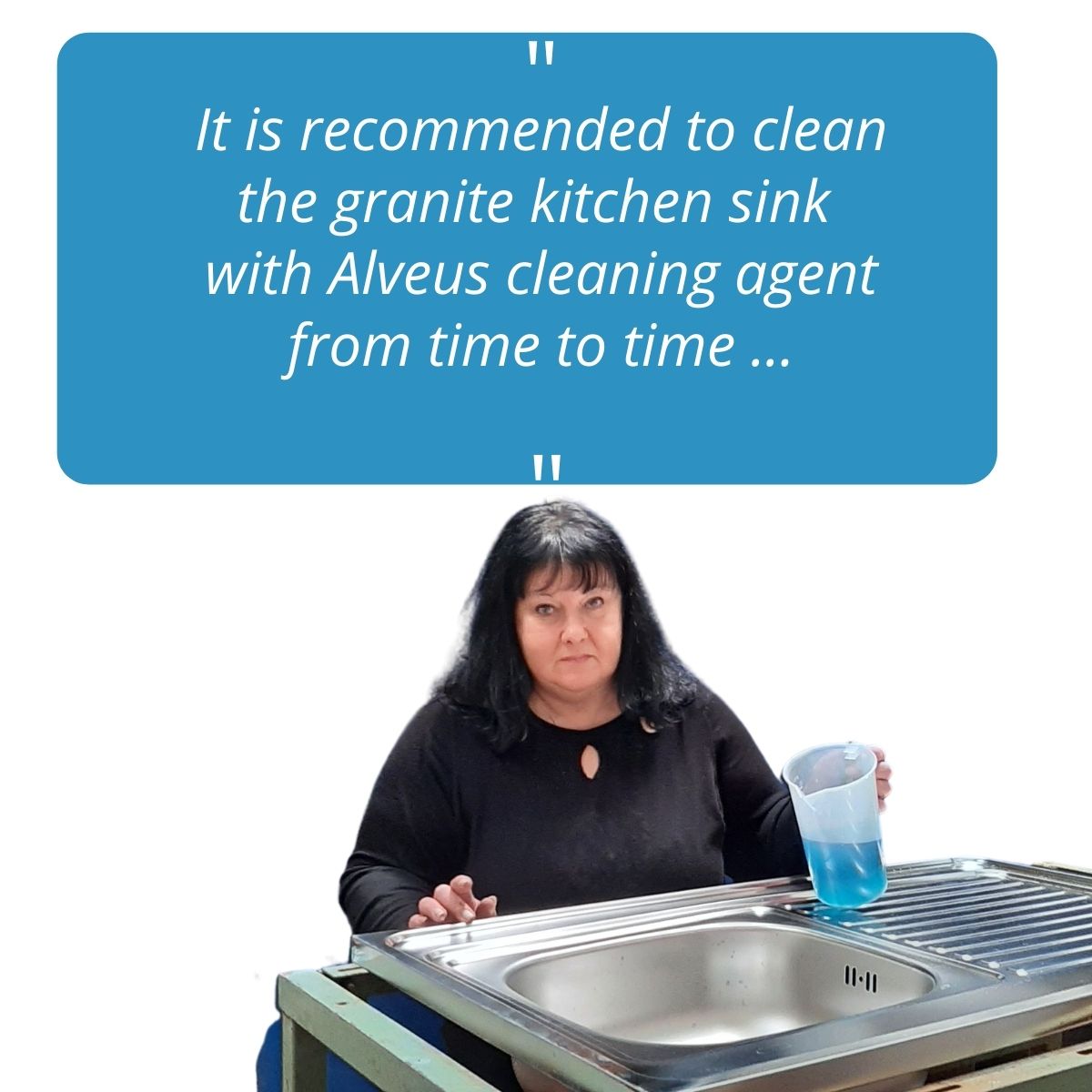
Tip # 7
“To avoid the formation of limescale deposits it is advisable to clean the granite kitchen sinks every now and then with 9 % vinegar.”
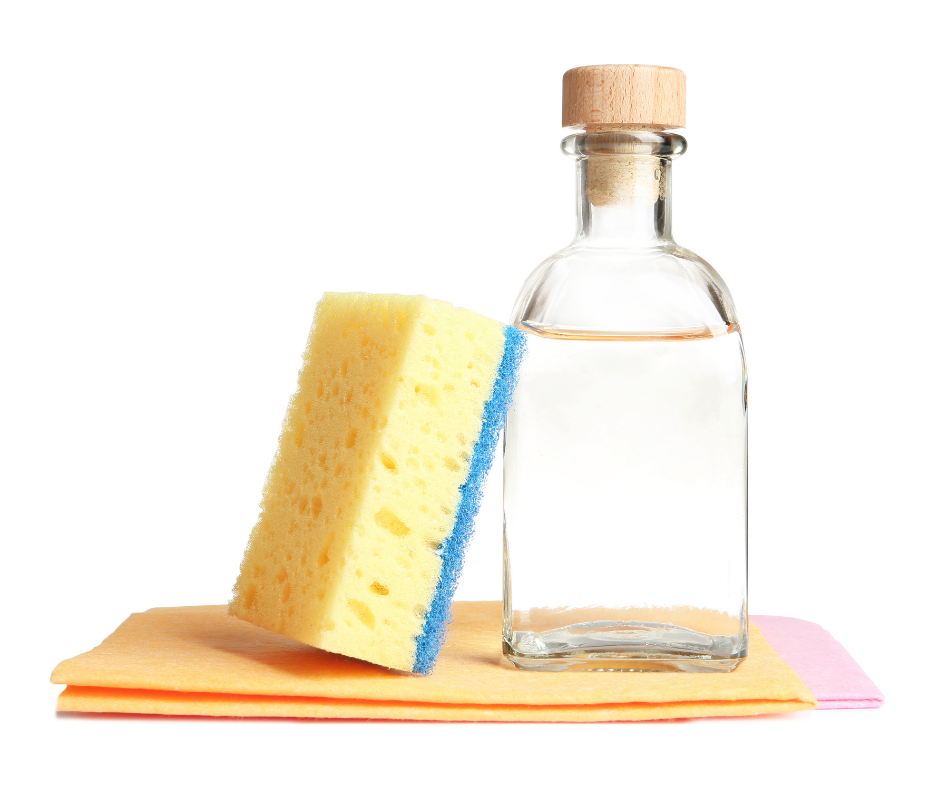
Tip # 8
“Never leave any food or liquid residues (e.g. lemons, wine, tea bags etc.) on the bottom of the granite kitchen sink.
Prolonged contact with these substances may lead to discoloration.
Never place any pots and pans that you have just removed from the hob directly on the kitchen sink.
Never pour any hot oil directly into the sink.”
Tip # 9
In terms of cleaning, beige colour is the most convenient at the granite kitchen sinks. The limescale residues are the most noticeable on black kitchen sinks so therefore regular wiping with a cloth is particularly important.
Cleaning of kitchen sinks made of glass
Tip # 10
“Gently wash your glass kitchen sink with a liquid detergent. You may also use a liquid glass cleaner. Then rinse your glass kitchen sink with water and wipe it dry.
At glass kitchen sinks you should also take care to wipe the surface of the kitchen countertop along the edge after each use, in order to prevent liquid from leaking between the glass and the countertop.”
